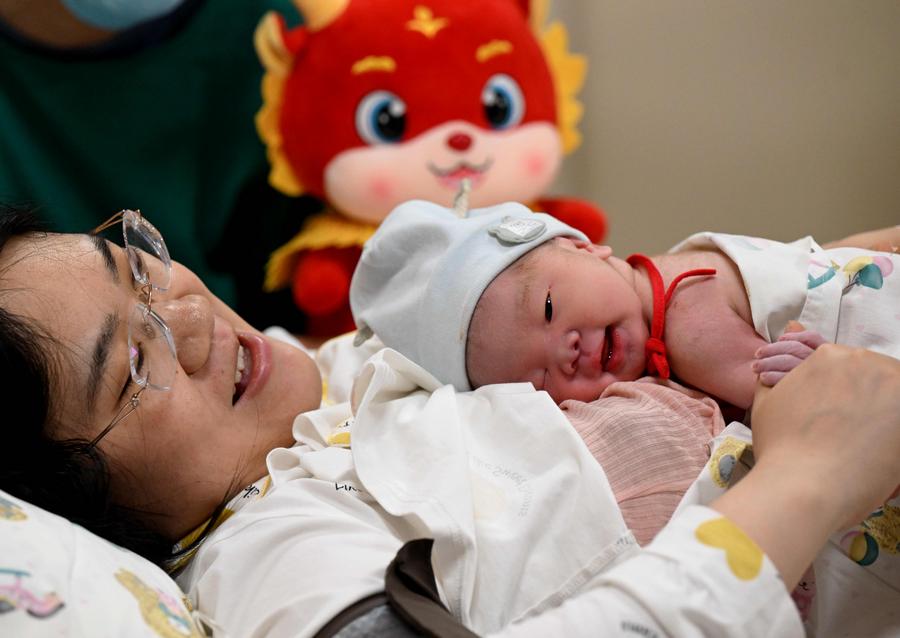
Local governments are rolling out subsidies to ease the financial burden of raising young children, following a national initiative to support early childcare.
These subsidies follow the central government's announcement of an annual cash allowance of 3,600 yuan ($500) for families with children aged 0 to 3.
Jiangxi province has announced that families with infants can receive childcare vouchers worth 200 yuan, which can be used at designated childcare institutions.
ALSO READ: Childcare subsidy applications to start in late August
Sichuan province said in a recent statement that starting Aug 30, approved inclusive childcare providers enrolling children under three will receive an operational subsidy of 200 yuan per child per month, based on full-day enrollment and attendance.
Many other regions across China have also introduced subsidies for inclusive childcare services.
In June, Shanxi province announced that independent childcare facilities would receive a subsidy of 500 yuan per child per month, while kindergartens offering childcare services would get 300 yuan per child per month.
In the Economic-Technological Development Area of Beijing, a fixed per-student subsidy of 1,000 yuan per month has been proposed for inclusive private kindergartens and childcare institutions.
Additionally, Donggang district in Rizhao, Shandong province, is offering a one-time startup subsidy of 20,000 yuan per childcare class and an annual operating subsidy of 710 yuan per childcare slot.
Lu Jiehua, a professor at the School of Population and Health of the Renmin University of China, told China News Service that the flurry of childcare policies signals a positive shift.
READ MORE: China to offer nationwide childcare subsidies
The government is implementing various measures to reduce operating costs for the childcare industry and relieve financial burdens on families, he said.
He believes these policies will attract social capital investment in childcare services and may lessen the economic pressures on families considering enrollment for their children.
However, whether these measures will truly increase enrollment rates will need to be evaluated over time as the policies take effect, he added.


